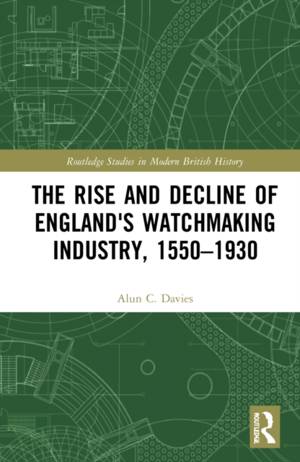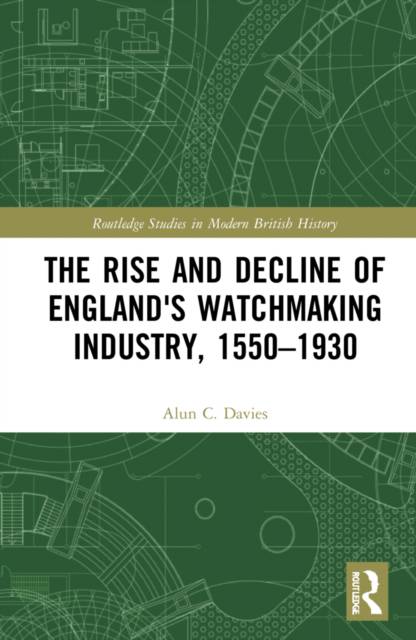
- Retrait gratuit dans votre magasin Club
- 7.000.000 titres dans notre catalogue
- Payer en toute sécurité
- Toujours un magasin près de chez vous
- Retrait gratuit dans votre magasin Club
- 7.000.0000 titres dans notre catalogue
- Payer en toute sécurité
- Toujours un magasin près de chez vous
The Rise and Decline of England's Watchmaking Industry, 1550-1930
Alun C DaviesDescription
This survey of the rise and decline of English watchmaking fills a gap in the historiography of British industry. Clerkenwell in London was supplied with 'rough movements' from Prescot, 200 miles away in Lancashire. Smaller watchmaking hubs later emerged in Coventry, Liverpool, and Birmingham. The English industry led European watchmaking in the late eighteenth century in output, and its lucrative export markets extended to the Ottoman Empire and China. It also made marine chronometers, the most complex of hand-crafted pre-industrial mechanisms, crucially important to the later hegemony of Britain's navy and merchant marine. Although Britain was the 'workshop of the world', its watchmaking industry declined. Why? First, because cheap Swiss watches were smuggled into British markets. Later, in the era of Free Trade, they were joined by machine-made watches from factories in America, enabled by the successful application to watch production of the 'American system' in Waltham, Massachusetts after 1858. The Swiss watch industry adapted itself appropriately, expanded, and reasserted its lead in the world's markets. English watchmaking did not: its trajectory foreshadowed and was later followed by other once-prominent British industries. Clerkenwell retained its pre-industrial production methods. Other modernization attempts in Britain had limited success or failed.
Spécifications
Parties prenantes
- Auteur(s) :
- Editeur:
Contenu
- Nombre de pages :
- 394
- Langue:
- Anglais
- Collection :
Caractéristiques
- EAN:
- 9781032131344
- Date de parution :
- 12-04-22
- Format:
- Livre relié
- Format numérique:
- Genaaid
- Dimensions :
- 152 mm x 229 mm
- Poids :
- 721 g

Les avis
Nous publions uniquement les avis qui respectent les conditions requises. Consultez nos conditions pour les avis.






